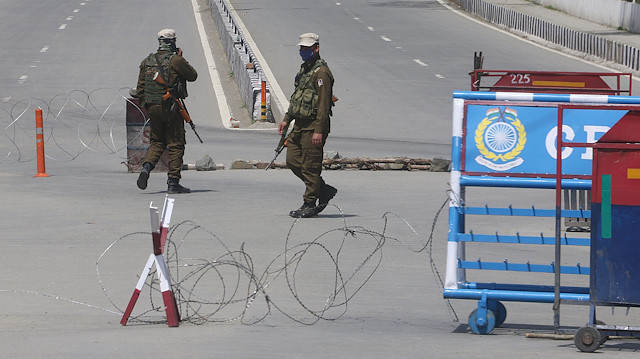
A Muslim missionary group Tablighi Jamaat is in the headlines, as reports of coronavirus or COVID-19 cases, emerging from different parts of the world are being linked to its gatherings.
The Indian government has filed a case against its Chief Maulana Mohammad Saad Kandhalvi for arranging a gathering at its headquarters located in Nizamuddin locality in the heart of capital New Delhi.
A strictly apolitical organization that focuses only on teaching basics of Islam to its followers, has invoked the ire of Indian media, which is projecting Muslims in general and the group in particular as villains in the battle against the spread of the virus.
Even senior leaders of India’s ruling Bharatiya Janata Party (BJP) were quick to denounce the Jamaat for arranging congregation, alleging the act had endangered lives.
Authorities said Kandhalvi had made a mockery of social distancing norms. They said that after Prime Minister Narendra Modi announced a 21-day lockdown, thousands of people continued to stay inside the Nizamuddin Markaz. But Jamaat office-bearers say that participants of the gathering had no way to go to their homes, because of sudden lockdown.
Kandhalvi, 55, is the great-grandson of Muhammad Ilyas Kandhlavi who founded the group in 1926 in a rural region of Mewat, in the outskirts of Delhi. The organization has millions of members spread in more than 90 countries, including Australia, the U.K., the U.S., Afghanistan, Malaysia, and Indonesia.
The Jamaat sends followers to different parts of the world, teaching the basics of Islam and rituals to Muslims. Each group consists of eight to 12 people who take care of their expenses and stay in local mosques.
Kandhalvi is considered a scholar of Islam like his great grandfather and his grandfather Mohammad Yusuf.
His brother-in-law and close associate of Tablighi Jamaat, Maulana Zia ul Hasan, told Anadolu Agency: "Jamaat is an apolitical organization and our practices are in strict accordance with the Quran."
The teachings of Tabligh Jamaat are expressed in "Six Principles": Kalimah (or the declaration of faith), Salah (prayer), Ilm-o-zikr (knowledge), Ikraam-e-Muslim (respect of muslims), Ikhlas-e-Niyyat (sincerity of intention), and Dawat-o-Tableegh (proselytizaton).
- Split in the group
Although Kandhalvi is a prominent figure with a vast number of his followers, three years ago there was a split and the group was divided into two factions.
Islamic scholars and prominent figures in the group, including Maulana Ibrahim Deol and Maulana Ahmed Lat, left after differences with Kandhalvi.
Deol and Lat, from the western Indian state of Gujarat, are the most well-known faces of the breakaway faction.
There is no figure to prove how many people belong to different groups.
According to critics, the biggest weakness of Kandhalvi’s personality is his "stubbornness". He does not listen to anyone.
However, Kandhalvi's brother-in-law Maulana Hasan does not consider him responsible for the split.
"They wanted that there should be different leaders every week. How decisions can be taken if a new leader is changed quickly in a religious organization like this?" he asked.
Regarding Kandhalvi's "stubborn" nature, his brother-in-law said: "This accusation is not entirely correct. He is a leader of the Jamaat around the world and has to make decisions on many issues."
When asked about the exact number of Tablighi Jamaat members, Hasan said he has no idea but claimed he read in a book published in the U.K. that there must be around 300 million.
Hasan admits Jamaat has committed mistakes unknowingly. "It would be wrong to say that all this has been done intentionally," he said.














